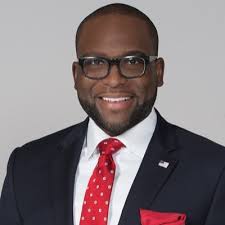Environmental injustice comes in many forms. We see it when lead contaminates a community’s water supply. We see it in communities afflicted with toxic smog pollution.
In South Florida, it arrives in the form of catastrophic storms and rising sea levels that pose the most danger to the poorest among us. But whatever form environmental injustice takes, two aspects remain consistent — the most vulnerable of our community will endure the worst consequences.
We are facing a climate crisis, and South Florida is Ground Zero in this fight. And with elected leaders in Tallahassee and Washington failing to take action or adhere to scientific facts, matters in South Florida will only get worse.

The incessant burning of fossil fuels and clearing of trees that absorb carbon dioxide are causing the Earth’s temperature to rise at an alarming pace. As a result, hurricanes are becoming more destructive and extreme heat waves more frequent.
South Florida knows these perils all too well, and the concern didn’t start with the threat of Hurricane Dorian. Think back to the weeklong heat wave in June that confined residents in their homes and forced construction workers to alter work schedules to avoid the insufferable midday temperatures.
According to the Union of Concerned Scientists, Miami-Dade could end up suffering through an average of 134 days a year with temperatures above 100 degrees in the next two decades.
Beyond extreme heat, devastating storms serve as stark reminders of the threat posed to property and human life. Floridians from the Panhandle to the Keys continue to recover from Hurricanes Michael and Irma, respectively, and today, 1,300 people remain missing in The Bahamas weeks after Dorian.
After Dorian hit, we partnered with local community organizations to collect relief supplies, including food, water, medicine and other essentials, and traveled to the islands to deliver these items.
Photos and video of the affected areas fail to paint the full picture of the grave situation. Reports estimate more than $7 billion in damage; shelters, hospitals and entire communities are no longer.
It’s been heartbreaking to speak with people who are still looking for loved ones. My own family in the Bahamas — including cousins, uncles, and aunts — is grappling with extensive flooding and damage but are all safe and accounted for after surviving the worst storm in the nation’s history.
Sadly, as leaders fail to tackle the climate crisis, these effects only scratch the surface of what we’ll see in the years ahead. There will be more lives lost and costly damage done if we don’t act. But rather than confront climate change, the Trump administration has made matters worse by unraveling progress made during the Obama administration.
Trump is rolling back car-emissions standards and loosening regulations on air pollution. And instead of empowering the EPA to ensure breathable air and drinkable water for all, Trump’s budget slashed air-monitoring protections, shut down hazardous waste clean-up programs and gutted the civil-rights and environmental-justice divisions.
We have a moral obligation to confront the climate crisis and it is encouraging to see action from the Democratic majority in the U.S. House. Transitioning to a clean-energy economy is necessary to set our country on the right path. We owe it to future generations to make vehicles more efficient, cut methane emissions, increase energy efficiency standards and reduce the government’s greenhouse gas footprint — all contributing factors to our warming climate.
The climate crisis in South Florida demands urgent action. Each of us must do our part. I urge Floridians to learn more about climate change from groups like the CLEO Institute and Mom’s Clean Air Force, and rally behind a 100-percent clean energy economy. This is the only way to confront climate change and put the health of our communities, families, and children first.
State Rep. Shevrin Jones represents the 101st District, which includes southeastern Broward County.
“The Invading Sea” is part of the Florida Climate Reporting Network, a collaborative of news organizations across the state focusing on the threats posed by the warming climate.



